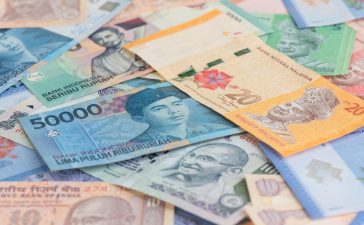Shares in the oil and gas giant closed 1.3% lower on Friday at 304p per share, with the stock down 36% year-to-date
BP wrote off $18 billion worth of assets this week, as oil prices are set to trade lower as investors fears of a second wave of coronavirus cases mounts.
Brent crude is down 39 cents to $40.66 a barrel at the time of publication, while the US West Texas Intermediate (WTI) is trading 50 cents lower at $38.22 a barrel.
BP closed 1.3% lower on Friday at 304p per share, with the stock down 36% year-to-date.
BP’s decision to write off $18 billion in existing assets is a significant sign that the company acknowledges that hydro carbon producers are sitting on oil fields that will likely never be developed due to the Covid-19 pandemic weakening demand and increasing interest in renewables.
In February we set out to become a net zero company by 2050 or sooner, BP CEO Bernard Looney said in a statement earlier this month. Since then we have been in action, developing our strategy to become a more diversified, resilient and lower carbon company.
As part of that process, we have been reviewing our price assumptions over a longer horizon. That work has been informed by the Covid-19 pandemic, which increasingly looks as if it will have an enduring economic impact, Looney said.
So, we have reset our price outlook to reflect that impact and the likelihood of greater efforts to ‘build back better’ towards a Paris-consistent world, he added.
BP recently revised its price outlook for oil, with the oil and gas major saying that its expects the long-term price for Brent crude to be around $55 a barrel, up to 30% lower than it previously forecast.
What this dim outlook for oil means in real terms is that many oil fields owned by the likes of BP and its peers will not bring in adequate returns and some of the undeveloped fields will not be developed.
BP shocked investors and pleased shareholders earlier this year when it opted to maintain its dividend pay-out despite the economic impact of the Covid-19 pandemic and the dramatic fall in oil prices.
However, the company’s recent revision of its outlook for oil prices and it decision to write down billions in assets sends a very different message – one of a business that has begun to understand the long-term economic impact the virus will have on demand and commodity prices.
As it stands, BP’s write-downs will weaken its balance sheet and force the company to take on more debt to offset the challenging market conditions it and its peers face.
But due to the company’s actions, credit ratings agencies could take a dim view of oil producers like BP and opt to downgrade them, which could increase cost of borrowing and put an end to dividends for some time.





